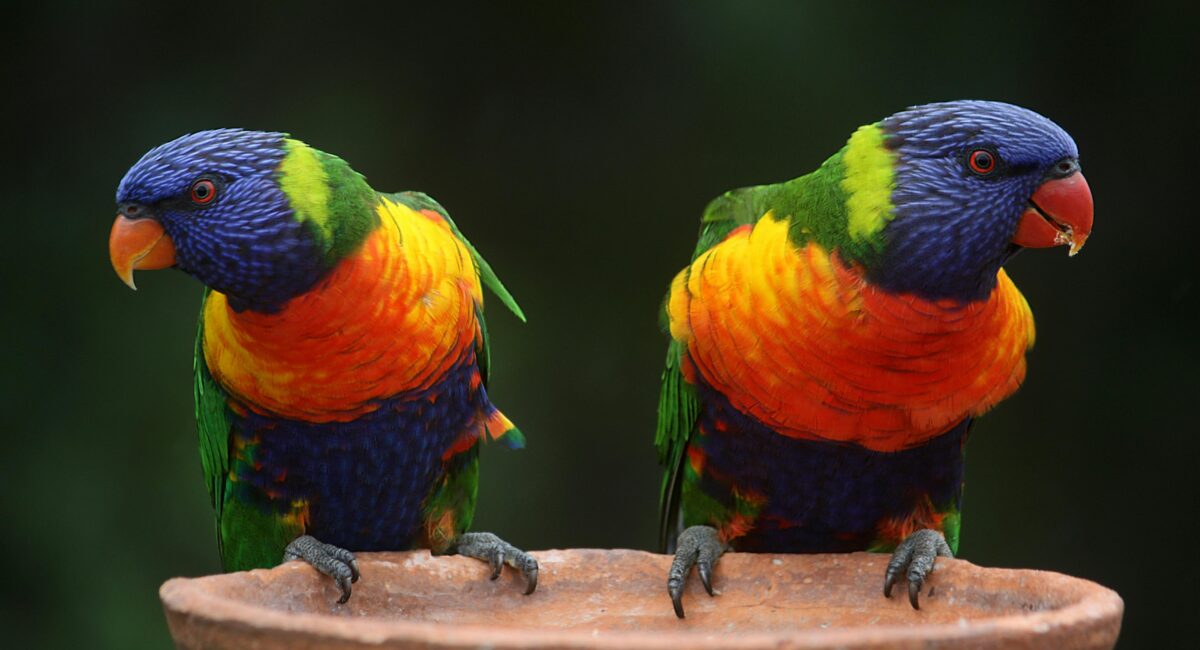Why do parrots scream?
Parrots are vocal animals, and their calls are a natural part of who they are. While some noise is expected, constant screaming can be frustrating.
Let’s explore why do parrots scream and how to manage their noise in a kind and effective way.
Parrots Communicate with Their Flock
What Is a Contact Call?
In the wild, parrots live in flocks that provide safety and companionship. They use contact calls to check in with flock members, especially when separated.
At home, you become your parrot’s flock. If you leave the room or house, your bird may call for you. When you don’t respond, the calls often get louder and turn into screams. So, why do parrots scream? It’s a way for them to try to reunite with their flock.
How to Respond
Instead of letting the screaming escalate, create a calm contact call, like a whistle or the phrase “I’ll be back soon.” Use it consistently when your parrot calls. Over time, your bird will understand this means you’re nearby and will return.

Why Else Do Parrots Scream?
Common Reasons for Noise
- Boredom: A parrot left alone too long may scream for attention.
- Excitement: Parrots vocalize to express happiness or energy.
- Fear: Sudden noises or unfamiliar animals can scare parrots into screaming.
- Illness or Injury: A bird in pain might scream or, conversely, become quieter.
Solutions for Common Causes
- Boredom: Provide toys, varied food, and at least 3-4 hours outside the cage daily.
- Exercise: Let your parrot fly or flap its wings to burn off energy.
- Fear: Be mindful of pets or loud sounds that may frighten your bird.
- Health Issues: Watch for unusual behavior and call the vet if needed.
Managing Morning and Evening Noise
Most parrots vocalize in the morning and late afternoon, mimicking wild routines. Allow your bird this time to express joy—it’s a natural behavior. So, why do parrots scream in the morning? It’s part of their natural rhythm.
Reducing Noise Levels at Home
Parrots often reflect the noise around them. If your home is loud (TVs, kids, pets), your parrot may join in. Try lowering the overall volume to encourage quieter behavior.
Avoid Harmful “Quick Fixes”
Some people cover the cage or move the bird to a dark room to stop noise. While this may work short-term, it’s not humane. A parrot locked away from its flock can suffer emotionally and physically.
Never scream back, hit the cage, or frighten your bird. These actions break trust and can cause long-term harm. This behavior may also lead to more screaming, as your parrot could associate your reaction with getting more attention.

Building a Happy, Quiet Home
Parrots need attention, exercise, and interaction to thrive. Accepting their natural vocalizations while managing excessive noise is key to understanding why do parrots scream. If screaming becomes unmanageable, contact an avian behaviorist for help. With patience and care, you can build a strong bond with your parrot and create a peaceful home.


